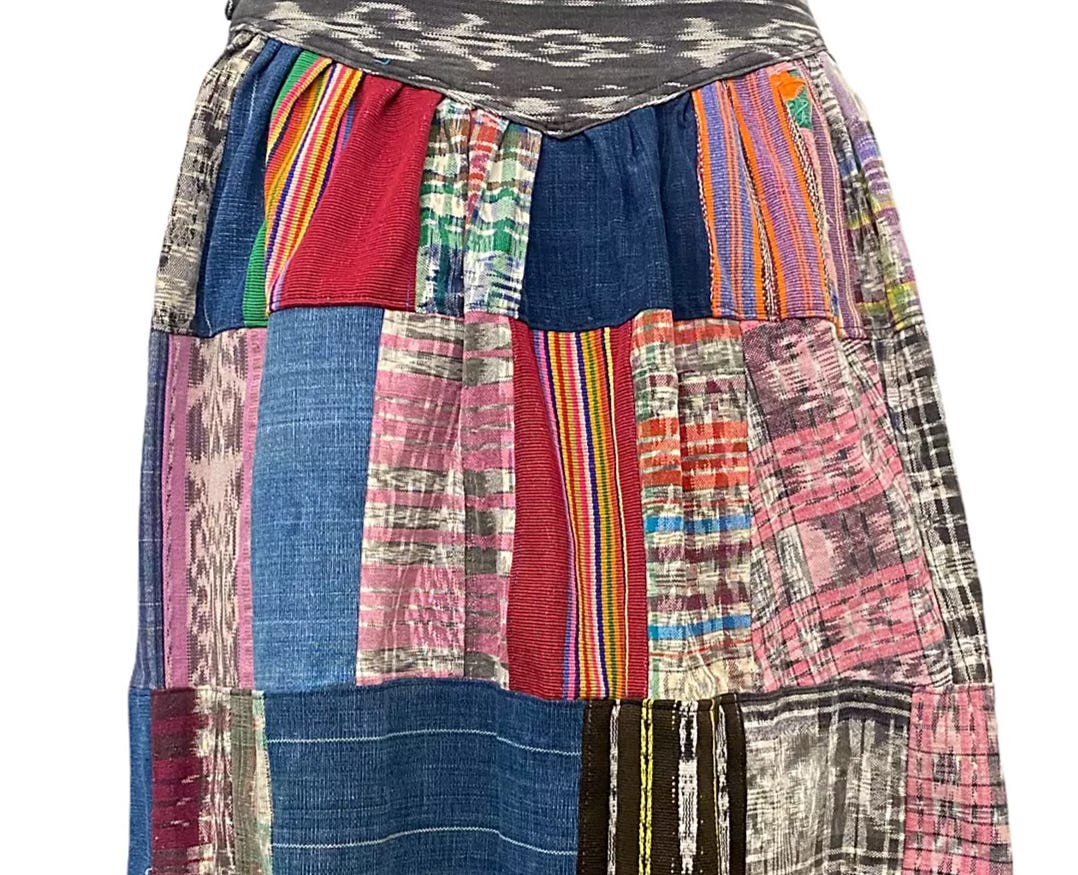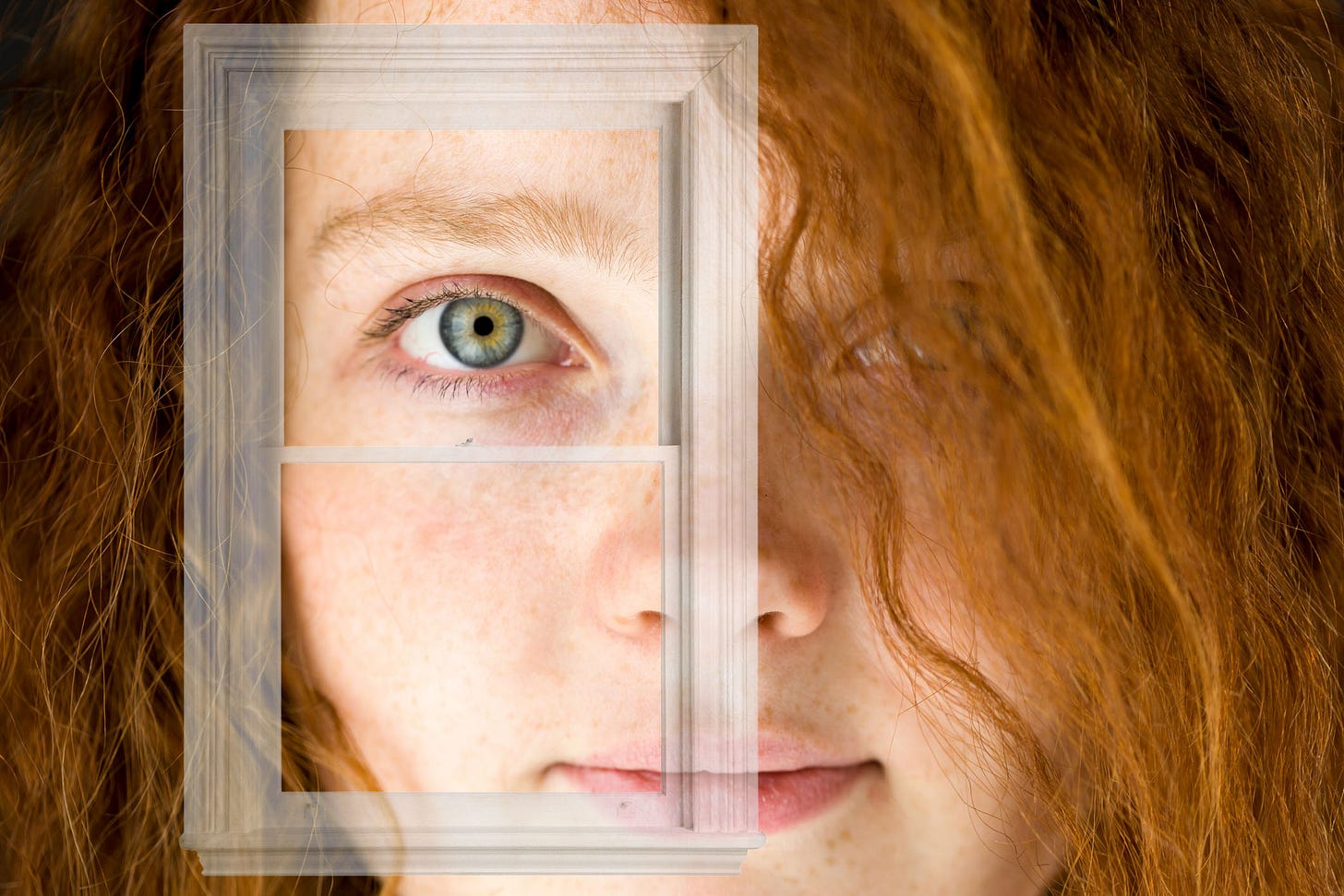The Blues & Billie Armstrong 13
THE WINDOW INSIDE
Previously in The Blues & Billie Armstrong…
Grandma Junia quickly stayed my arm, but not before I saw each of the newlyweds raise a surprised hand to the sting on their cheek.
Like many modern improvements, the Sixties were late getting to Lupoyoma County.
They arrived on my street in a rattletrap Dodge pickup one drowsy evening in April of 1970. The pickup stopped in front of my house, and a girl clambered out of the cab. She yanked a faded green duffle bag out of the truckbed, slung it over one shoulder by its strap, then bounced on the curb in her bare dusty feet, waving and hollering, “Thanks for the ride, man!”
It wasn’t that we were completely unaware of the changes—the new trends in music and fashion, the hippies, LSD, free love, men on the moon, assassinations, demonstrations, bombs in police stations—the multi-faceted revolution (or collapse) happening across the country. But we only saw it on television and in the pages of magazines. And in our Lupoyoma innocence we imagined that’s where it would stay for the most part. At least I had imagined so... until that evening.
I was standing on the front lawn in my new baseball uniform, throwing pop flies into the air and catching them with my glove, the Willie Mays Autograph Model made by MacGregor. Now I stood still with the glove dangling at my side as the ball fell to the grass.
The old farmer in the old Dodge waved, ground out a noisy three-point turn and headed back up toward Main Street. The girl spun around and I froze in place, measuring her in skittish glances. She had copper-red hair that curled and tumbled like stormwaves around a cheeky face. She wore a boy’s white t-shirt and a patchwork skirt that looked like it was stitched by a colorblind gypsy. And to the wonderment of my thirteen-year-old eyes, she wore no bra. She strode across the lawn directly toward me with her right hand straight out. “You must be Archer,” she said. “I’m Billie Armstrong. I guess I’m your new sister.”
I’d never shaken a girl’s hand before. Her hand was smooth and soft, but her grip was strong.
My father and Darlene Beverly appeared from inside and before the screen door smacked the frame Darlene was off the porch, fussing and hugging her daughter on the walkway, pushing the red hair out of Billie’s eyes and trying to hoist the duffle bag herself.
My father jogged down the steps and lightly took the bag. Billie Armstrong stood with a hand on her hip and said, “Thanks, man” with a big howdy smile.
Instead of hello, my father said, “What happened to the bus ticket we bought?”
And Billie said, “I cashed it in, man. I only had to pitch in for gas and this guy I met at a big protest last year took me all the way from Cleveland to Frisco. Saved you sixteen dollars, man. But then it took seven more rides to get up here—man, this place sure is the middle of nowhere!”
She reached into the pocket of her t-shirt and pulled out some rumpled bills. I studiously observed the movement of planets under her shirt. My father frowned at my slackened jaw, furrowed his brow at Billie. “My name isn’t Man,” he said. But he accepted the money, turned around and marched the duffle bag up the steps and into the house. Darlene Beverly scampered after him.
In a past life my room had been the back porch.
A do-it-yourselfer had enclosed it without quite finishing the project. The inside wall of the room had previously been the outside wall of the house, and it was still covered by the dirty and faded clapboard siding. And toward the far end of the narrow room, there was a window in what used to be the outside wall. It was an aging, wood-framed, split or “double-hung” window, practically my height.
On the other side of that window was the dayroom. My father hadn’t gotten around to taking out the window and refinishing the wall, but my mother had hung curtains on both sides, and the glass had been thinly whitewashed so even with the curtains open you would only see gauzy shadows and shapes. The curtains were closed now but I knew Billie Armstrong was on the other side unpacking her duffle bag, moving in to the room where my mother had breathed her last.
I turned on my transistor radio to prepare for that night’s Giants-Dodgers game. I laid out my scorebook and baseball cards on my bedspread. I had the starting lineups from both teams, plus some of the pitchers. Since my mother’s death the mysterious code of symbols and abbreviations she’d taught me—the metamorphosis of pencil scratches to historic artifact—had become an important ritual.
On the radio, the national anthem played and the broadcasters introduced the lineups and described the Giants’ high-kicking Juan Marichal throwing warmup pitches from the mound while the Dodgers’ speedy Maury Wills swung two bats in the on-deck circle.
Suddenly I heard music coming from the other side of the window. A ticking rhythm, a run of bass notes, a drum fill, a raspy guitar riff, and then a low moan from some woman’s gut. Horns and cymbals rattled the glass, the moaning woman began to wail and possibly speak in tongues. Maury Wills was safe at first and I had no idea how he got there.
I hesitated, thinking surely my father or Darlene would put a stop to this, but no one intervened and the racket continued. I stomped through the kitchen and the living room and down the hallway toward the dayroom door. What I planned to say was, “whatever that is, it’s too damn loud,” and I rehearsed it in my head with the deep voice of my father in mind.
But when I got there another song had started, and this one was quieter and slinkier. The door was open and Billie’s back was turned. She had apparently produced paints and brushes out of her duffle bag, pushed the curtains back, and was now decorating the window between our rooms with a psychedelic landscape—a pumpkin sun rising over lavender hills next to an electric indigo lake.
The duffle bag lay on its side in the middle of the room like a horn of plenty, some of its contents tumbling out on the oval corded rug. Well-worn paperbacks and old magazines. Scuffed up combat boots, wrinkled t-shirts and faded jeans. A Strathmore sketch pad, a man’s denim workshirt, and yes, one white and sturdy-looking brassiere.
She began to sing along with the record. I said nothing and stood in the doorway watching the back of her as she painted the window and swayed to the music. The patchwork skirt swung with her hips like an expert dance partner. Her every movement was in rhythm—she painted, sang and danced as if they were all one thing unified by the music. I momentarily forgot my haunted memories of the room, and even why I had come to the door. I held my breath and the peachfuzz on my arms stood erect.
The song ended and I exhaled, and she turned around and caught me there. I nodded at the old Grundig hi-fi cabinet and stuttered, “That was my mom’s record player.”
Billie reached over and snatched up the turntable arm and rested it back on its perch. She said, “Mike, I mean your dad, said it was okay.”
“Yes, but keep the volume down.” My father suddenly brushed past me into the room. He sat down on the low stool in front of the vanity. I’d seen the official father-in-charge look in his eyes many times before. “And Billie, we need to talk, he said.” Of course this meant he would talk and she better listen.
Billie sat down on the bed, the paintbrush now lifeless in her hand, a guarded uncertainty in her eyes. No one looked at me, so I didn’t move.
“I hope you realize how lucky you are to be here right now, young lady. Personally, I believe in accepting the consequences of one’s actions, but your mother’s convinced me that you deserve a second chance to get your life in order. Now, I know you really don’t want to be here forever, so here’s the deal. When you turn eighteen, you’re free to leave. Do what you want with your life. We won’t try to stop you. But let me be perfectly clear—in the meantime, if there’s any more trouble with the police, I won’t step in again, you’re on your own. Is that understood?”
She nodded like a scolded child.
My father stood. “And if you try to run away again, you just keep going, because you won’t be welcome back in this house.” And he left the room.
“Whoa!” Billie said. “He has that serious dad vibe totally down, man. I’m freaked out!”
But I could tell she wasn’t (although I thought she should be), and I left the doorway. Then I backpedaled and leaned my head into the room. She gave me a question-mark look and I pointed my eyes toward the record player. “Oh yeah,” I said, “What was that?”
I’m sure I had some alarmed expression, because she laughed and her red curls jostled around her face. “That’s Janis, man! You don’t know Janis Joplin? Oh man, you and I are gonna have to talk!” As she spoke, she barefooted back to the Grundig and, with the record still spinning, delicately dropped the needle back into the same groove she’d lifted it out of minutes before. She looked at me and wet her lips like I was a blank canvas. “We’ll talk for sure, man.” she said. She dipped her brush in a bottle of paint and, with the first chords of a new song, spun around to resume her work on the window. The gypsy skirt twirled in rhythm.
Janis Joplin? I was only dimly aware of her. There was no Janis Joplin on my father’s Magnavox or in Grandma Junia’s glove compartment. At eighth grade dances the popular girls picked the music: Three Dog Night, Creedence Clearwater Revival, awkward slow dances to The Carpenters. What did I know of Janis Joplin, except that she sounded injured?
Back in my room, the Dodgers were already leading three-zip in the bottom of the second inning. I looked at my blank scoresheet. I hadn’t even finished the lineups. I closed the scorebook and tossed it on the floor. I gathered up the cards and put them back in the Keds shoebox, carefully ignoring the pink lipstick envelope, and slid the shoebox under the bed. I turned the radio off and stood it up on the nightstand. Through the window, Janis Joplin was screaming for One Good Man, (preferably one that could quiet her down).
I opened the curtains and I laid down on my bed, this time on my stomach, head propped up in my hands, and I stared at the window, the shapes and the colors muted through the whitewash and all of it wavering in the swaying shadow of Billie’s body. Swirling paisleys slowly formed at the edges of the landscape like distant galaxies mingled with the word Love written several times in a round, openhearted script.
I lay there reading it backwards like hieroglyphics from a foreign land. I fell asleep wondering if I was looking in or out.
The Blues & Billie Armstrong is a work of fiction. Names, characters, businesses, places, events and incidents in this book are either the product of the author's imagination or used in a fictitious manner. Any resemblance of the fictional characters to actual persons, living or dead, is purely coincidental.
© All Rights Reserved



